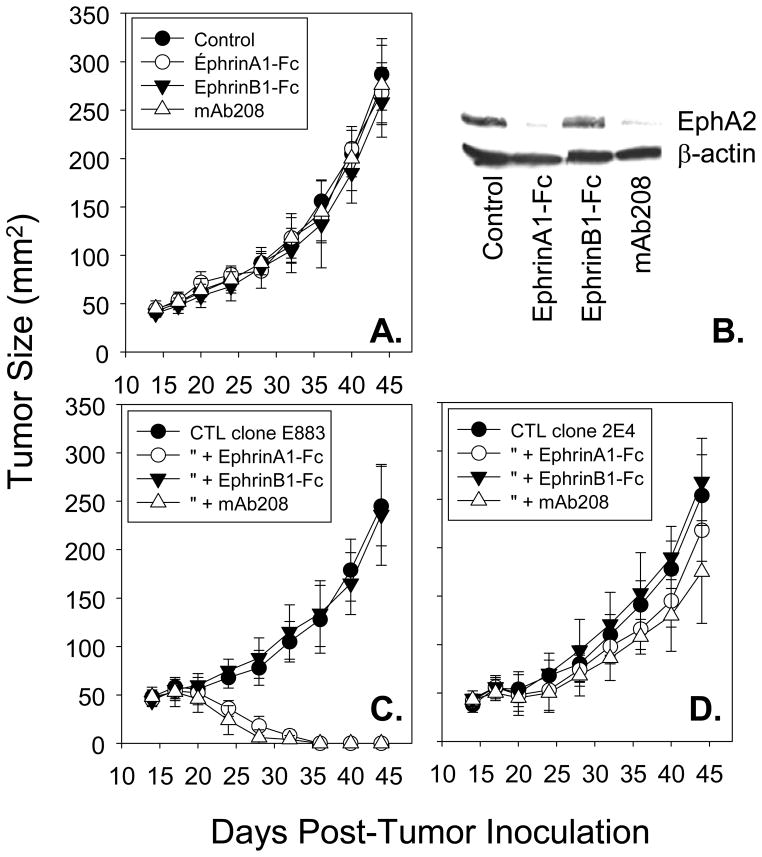Figure 5. EphrinA1-Fc and mAb208 promote EphA2 down-regulation in situ and sensitize EphA2+, HLA-A2+ SLR24 tumors to enhanced eradication mediated by adoptively transferred anti-EphA2, but not anti-HLA2 allo-specific, CD8+ T cell clones in vivo.
In panel A, Female CB17-scid/scid mice were injected with 1 × 106 human SLR24 (HLA-A2+/EphA2+) RCC cells s.c. in the right flank and allowed to establish to a size of approximately 30 mm2 (i.e. d18). Animals were then randomized into 4 cohorts (6 animals each) receiving no treatment (control), or intratumoral injections of EphrinA1-Fc (50 μg) or EphrinB1-Fc (50 μg) or mAb208 (50 μg) on d18. Tumor size was evaluated every 3–4 days, with results reported in mean mm2 +/− SD. In panel B, tumors were resected from 1 mouse/cohort on day 19 (i.e. 24 hours after treatment and Western Blots performed to validate EphA2 degradation in situ. In panels C and D, 5 × 106 CD8+ T cells (either anti-EphA2883-891 clone E883 or anti-HLA-A2 allo-specific clone 2E4, respectively) were adoptively transferred by tail-vein injection on day 19 post-tumor inoculation, alone or in combination with prior day 18 intratumoral injections of EphrinA1-Fc, EphrinB1-Fc or mAb208 (50 μg each). Tumor size was evaluated every 3–4 days, with results reported in mean mm2 +/− SD. Data are representative of 3 independent experiments performed.

